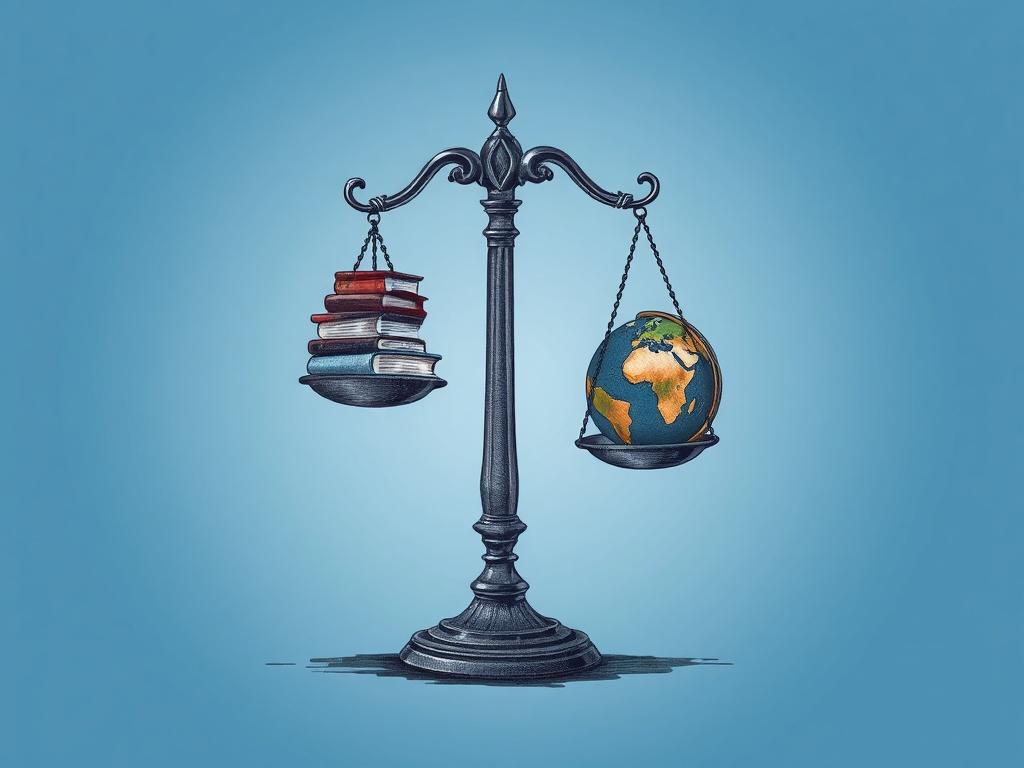
Global justice is a critical and increasingly relevant topic in our interconnected world. As societies grapple with issues like inequality, human rights, and environmental sustainability, understanding the foundations and principles of global justice becomes essential for fostering meaningful change. By exploring these core aspects, we can gain valuable insights into how justice transcends national borders and impacts individuals and communities worldwide. This blog post aims to unravel the complexities of global justice, laying the groundwork for a nuanced discussion about its theoretical underpinnings and practical applications.
In the following sections, we will delve into the historical perspectives and key theories that have shaped our understanding of global justice. We will highlight fundamental principles such as equality, rights, and responsibilities that guide our moral considerations on a global scale. Finally, we will explore the real-world implications of these concepts, examining how global justice can inform policies and practices in today’s globalized society. Join us as we embark on this essential journey to comprehend what it truly means to advocate for justice in a global context.
Explore the foundations of global justice: Historical perspectives and key theories
Global justice is rooted in a complex tapestry of historical events, philosophical debates, and ethical considerations that span centuries. To understand its foundations, we must first appreciate the evolution of ideas surrounding justice from ancient philosophies to contemporary theories. Thinkers like Plato and Aristotle laid the groundwork by emphasizing the importance of virtue and fairness in society. As time progressed, the Enlightenment brought forth notions of universal human rights, significantly influencing modern views of justice. These historical perspectives invite us to explore how different cultures and societies have understood and approached the idea of justice, paving the way for today's global discourse.
In addition to historical perspectives, various key theories have emerged to define what global justice entails. Utilitarianism, for example, promotes the idea that actions should maximize overall happiness, raising questions about how justice should be distributed globally. On the other hand, John Rawls’ theory of justice focuses on fairness and equality, advocating for a social contract that protects the least advantaged members of society. Meanwhile, cosmopolitanism argues for a global ethic, suggesting that moral obligations extend beyond national borders. By delving into these theories, we gain a clearer understanding of the diverse viewpoints that shape the principles of global justice.
Principles of global justice: Understanding equality, rights, and responsibilities
Global justice revolves around the idea that all individuals, regardless of nationality, ethnicity, or socio-economic status, deserve equal treatment. One of the core principles is equality, which asserts that each person has intrinsic worth and should receive fair opportunities. This principle challenges systemic inequalities and promotes a vision of a world where everyone has access to essential resources such as education, healthcare, and basic human rights. Understanding equality within the realm of global justice invites us to consider how wealth distribution, political power, and societal structures can both hinder and promote equitable treatment for all.
In addition to equality, rights play a crucial role in shaping the principles of global justice. Human rights establish a framework for what individuals are entitled to and serve as a guide for ensuring that everyone can lead a dignified life. These rights compel nations and organizations to uphold standards of justice, advocating for the protection of vulnerable populations and condemning inhumane practices. Responsibilities also emerge as a key principle, emphasizing that nations and individuals have obligations not only to their own citizens but also to the global community. Embracing these principles encourages a collective effort towards creating a fairer world, prompting discussions on how we can address injustices, foster solidarity, and promote sustainable development.
Exploring the implications of global justice: Practical applications in today's world
Global justice plays a pivotal role in guiding international relations and shaping policies that address pressing global issues. By emphasizing the interconnectedness of humanity, the principles of global justice urge nations to work collaboratively in tackling challenges such as poverty, climate change, and human rights violations. For instance, organizations like the United Nations and various non-governmental organizations actively promote the principles of global justice through initiatives targeting equitable resource distribution and sustainable development. These efforts illustrate how a commitment to global justice can create lasting positive change, as they encourage countries to prioritize social welfare and justice in their policies while fostering solidarity among nations.
Moreover, the implications of global justice extend beyond policy discussions; they manifest in various grassroots movements and social campaigns advocating for marginalized communities worldwide. Activists and citizens increasingly recognize their moral obligation to promote justice across borders, leading to a surge in transnational movements that address issues such as refugee rights and global health disparities. By exploring the foundations of global justice, individuals and communities can engage in collective action and drive fundamental change. This engagement not only enhances awareness of global inequalities but also emphasizes the shared responsibility to create a just and equitable world for all.